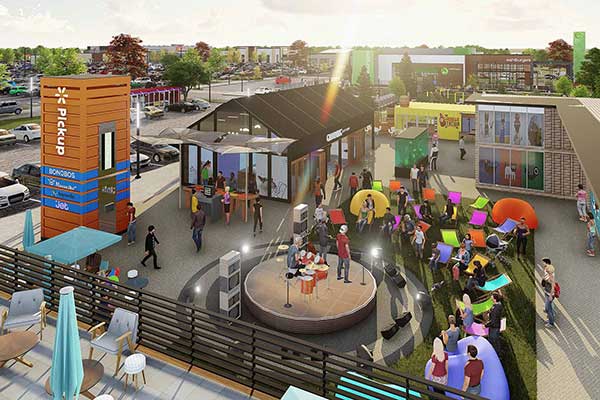Challenges
Parking Concerns
Traffic is always a concern with high-density retail areas. With mixed-use spaces, however, you also need to take into account residential vs. retail parking availability to create a balance between visitor and dwelling parking spots.
Noise and Sound Issues
You must take into account how close businesses are to residential areas. Noise pollution at inopportune times of the day can be problematic to residents.
Security
Access to certain areas within a building can be tricky. Specific users need to be allowed in some areas, while others must be prohibited. Finding a way to separate functions and access must be decided early in the planning process.
Benefits
Improved Walkability
There has been a shift toward a desire to live within walking distance to restaurants, retail
Lower Infrastructure Costs
By having businesses closer together, municipalities often are able to save money on roads, sewers and essential personnel like police and fire departments.
More Vibrant Communities
Mixed-use facilities offer amenities that foster community interaction. Plazas and parks, along with numerous shopping and dining options, can attract more buyers.


